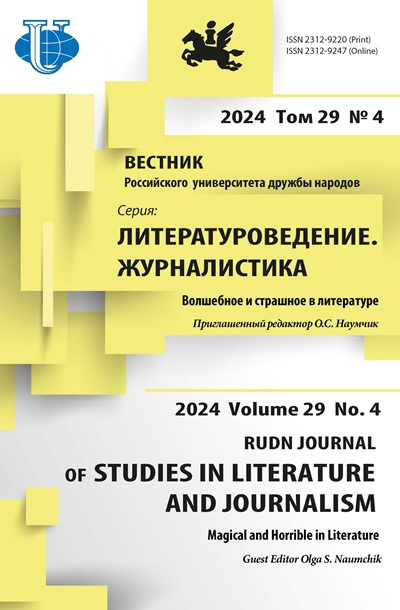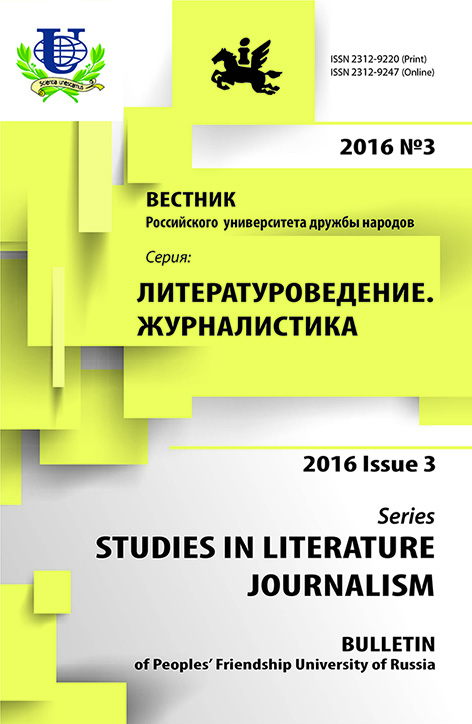THE PROBLEM OF GENDER ROLES IN THE NOVEL OF “NEW OBJECTIVISM”
- Authors: Dronova OA1
-
Affiliations:
- Tambov State University named after G.R. Derzhavin
- Issue: No 3 (2016)
- Pages: 74-83
- Section: ARTICLES
- URL: https://journals.rudn.ru/literary-criticism/article/view/14411
Cite item
Full Text
Abstract
The article discusses the problem of gender roles in the novels of “new objectivism” - a literary movement, that dominated the German literature of the 1920s and early 30s and was dedicated to the modernization of German society at that time, including changes in gender roles. Modern researchers speak about the crisis of the gender role of men in the “new objectivism” as the hero appears as a victim and gets such characteristics as passivity, disorientation and dependence. As for the gender role of women, the emancipation in German society during the period of Weimar Republik, was embodied in the image of the “new woman”, who became the subject of interpretation by women- writers - I. Koin,Fleißer and others. The greatest attention in the article is paid to the novel by M. Fleißer “Mehlreisende Frieda Geyer”, which interpreted both gender roles of men and women. The male character gets the traditionally “female” characteristics, and the heroine - “masculine” ones. Frieda Geyer is close to male heroes of the “new objectivism”, standing on the position of critical distance to her time and isshown through the typical principle of the “new objectivism” - antipsychologism. Female images in the „new objectivism“ are generally associated with the problem of self-determination, they choose between the traditional role and that of the “new woman”, though both of them don’t have sharp contours.
About the authors
O A Dronova
Tambov State University named after G.R. DerzhavinInternationalnaja str., 33, Tambov, Russia, 392000
References
















